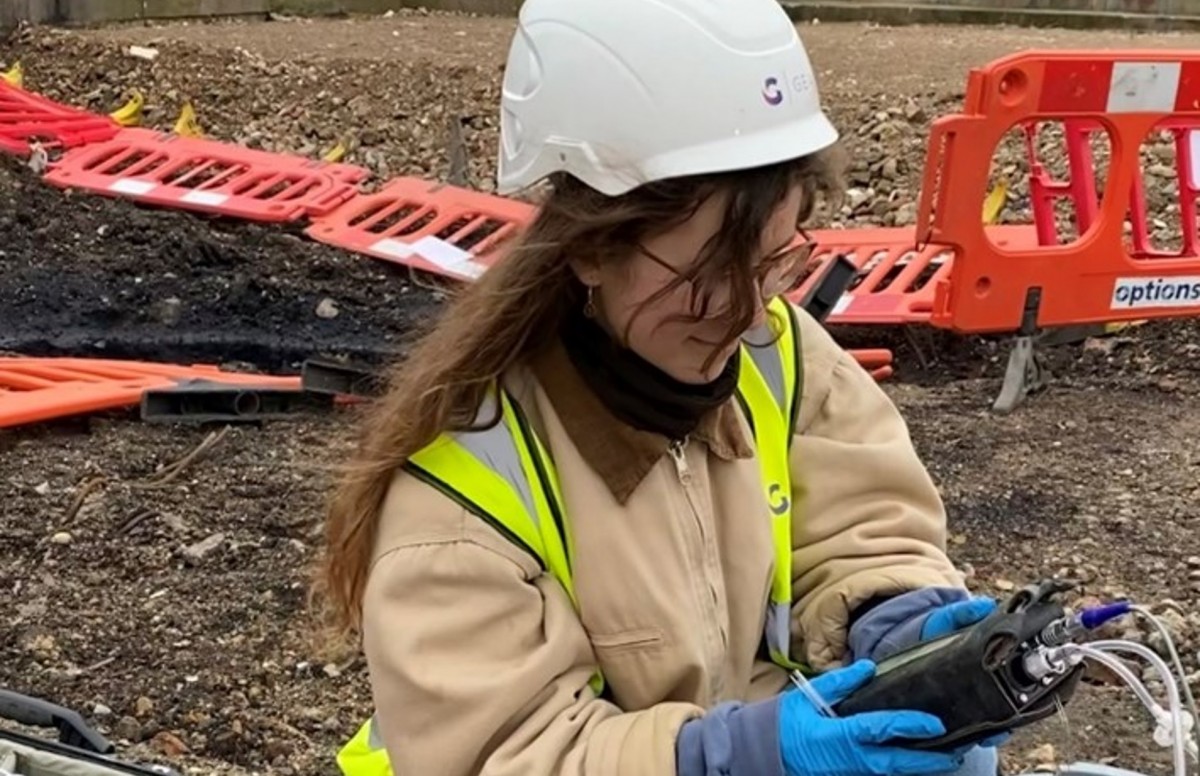The Definitive Guide to Geotheta
The Definitive Guide to Geotheta
Blog Article
Things about Geotheta
Table of ContentsHow Geotheta can Save You Time, Stress, and Money.Not known Details About Geotheta Rumored Buzz on GeothetaThe Greatest Guide To GeothetaThe Main Principles Of Geotheta

They carry out website investigations, collect examples, perform laboratory examinations, and analyze information to review the suitability of the ground for building tasks - Consulting Engineer. Based upon their findings, geotechnical designers supply suggestions for structure layout, incline security, preserving frameworks, and mitigation of geotechnical risks. They collaborate with other specialists, such as engineers, structural designers, and construction groups, to make certain that geotechnical factors to consider are integrated right into the total project design and execution
By examining the habits and residential properties of soil and rock, they can determine possible geotechnical risks such as landslides, dirt negotiation, or slope instability. Their proficiency helps protect against failings or crashes that can jeopardize lives and building. Below are some detailed duties and responsibilities of a geotechnical engineer: Site Investigation: Geotechnical engineers conduct website investigations to gather information on subsurface problems.
They translate the data to recognize the homes and habits of the dirt and rock, including their toughness, leaks in the structure, compaction attributes, and groundwater conditions. Geotechnical Analysis and Design: Geotechnical designers analyze the data gathered during website examinations to assess the stability and viability of the website for building and construction projects. They execute geotechnical computations and modeling to evaluate elements such as bearing capacity, settlement, incline security, lateral planet pressures, and groundwater flow.
Not known Details About Geotheta
Foundation Layout: Geotechnical designers play a vital duty in creating structures that can securely support the designated structure. They analyze the soil problems and load needs to determine the ideal structure kind, such as superficial foundations (e.g., footings), deep foundations (e.g (https://www.slideshare.net/ianhammond2191)., piles), or specialized strategies like soil renovation. They think about factors such as negotiation limitations, birthing ability, and soil-structure interaction to develop optimal foundation styles
They examine building and construction strategies, screen site activities, and carry out area inspections to confirm that the style suggestions are adhered to. If unanticipated geotechnical issues develop, they analyze the scenario and give recommendations for removal or adjustments to the design. Danger Analysis and Reduction: Geotechnical engineers examine geotechnical threats and dangers connected with the task site, such as landslides, liquefaction, or soil erosion.

Cooperation and Communication: Geotechnical engineers function carefully with various other experts associated with a job, such as architects, architectural designers, and building and construction teams. Efficient communication and collaboration are vital to integrate geotechnical considerations into the overall job style and building process. Geotechnical designers supply technical proficiency, solution inquiries, and make sure that geotechnical demands are met.
Not known Factual Statements About Geotheta
Below are some sorts of geotechnical engineers: Foundation Designer: Foundation engineers concentrate on developing and analyzing foundations for frameworks. They examine the dirt conditions, lots needs, and website characteristics to figure out one of the most appropriate foundation kind and layout, such as shallow structures, deep structures, or specialized strategies like stack structures.
They review the elements influencing slope security, such as dirt properties, groundwater conditions, and slope geometry, and create methods to avoid slope failures and minimize dangers. Earthquake Engineer: Earthquake engineers specialize in examining and designing structures to stand up to seismic pressures. They examine the seismic threat of a site, review soil liquefaction possibility, and create seismic layout requirements to guarantee the safety and security and resilience of structures during earthquakes.
They perform area screening, gather examples, and evaluate the accumulated data to characterize the soil buildings, geologic formations, and groundwater problems at a website. Geotechnical Instrumentation Engineer: Geotechnical instrumentation engineers concentrate on tracking and determining the behavior of dirt, rock, and frameworks. They install and preserve instrumentation systems that monitor factors such as dirt negotiation, groundwater levels, incline motions, and structural displacements to examine performance and give early cautions of possible issues.
Geotheta - An Overview
They conduct tests such as triaxial tests, loan consolidation examinations, More Info direct shear examinations, and permeability tests to gather information for geotechnical evaluation and design. Geosynthetics Designer: Geosynthetics engineers specialize in the style and application of geosynthetic products, such as geotextiles, geogrids, and geomembranes. They utilize these products to improve soil security, reinforce slopes, supply drain solutions, and control erosion.
They often tend to be investigatory people, which means they're intellectual, introspective, and inquisitive. They are curious, systematic, rational, logical, and logical. Some of them are likewise social, meaning they're kind, generous, cooperative, person, caring, handy, understanding, tactful, and pleasant - Geotechnical Engineers.
In the office atmosphere, geotechnical engineers make use of specialized software application devices to carry out calculations, create layouts, and assess information. They prepare records, evaluation job specs, interact with clients and team participants, and coordinate project tasks. The workplace setting provides a conducive atmosphere for research, evaluation, and partnership with other professionals entailed in the task.
The Main Principles Of Geotheta
They often see project sites to conduct site investigations, analyze geotechnical problems, and gather data for analysis. These visits entail taking a trip to different areas, sometimes in remote or challenging surfaces. Geotechnical engineers might execute soil sampling, conduct examinations, and display construction activities to make sure that the geotechnical elements of the project are being executed properly.
Geotechnical designers also function in specialized geotechnical research laboratories. Geotechnical research laboratory engineers function thoroughly in these atmospheres, taking care of screening devices, operating instruments, and recording data.
Report this page